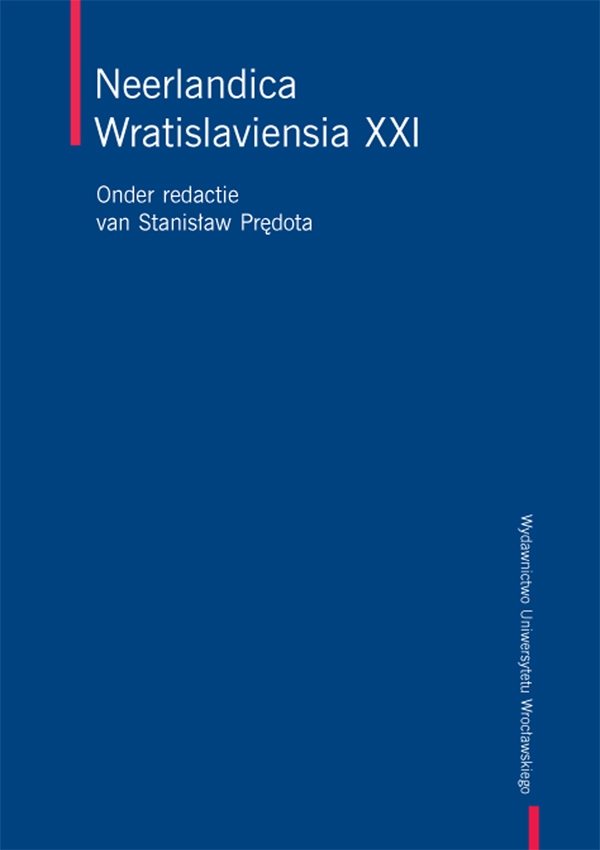

Artykuły

As well known Dutch is an elusive language in which nouns not only frequently have double genders but also double, if not triple plurals. The plural form of the most nouns of Latin forum, catalogus, collega, index, examen, Greek basis, dogma or Italian concerto origin can be, a the plural form in the language from which the word is borrowed fora, catalogi, collegae, indices, examina, bases, lemmata, tempi, b the Dutch plural form in -s or -en, c the two forms. We have used a servey carried out through Google 2011 Nl. and Be over four years 2007–2011 and two Dutch and two Flemish newspapers in order to assess to what extent the double plurals mentioned in WNT, ANS, and Grote van Dale 2005 are actually used by journalists. As Latin and Greek are less and less studied at school level while Italian never was, we could expect a shift from the imported plural forms to the Dutch forms.This indeed is the case for most Latin nouns ending with -a collega’s, -ex indexen or -men examens, Greek nouns ending with -ma dogma’s, and Italian nouns ending with -o tempo’s, yet not for other categories fora, catalogi, bases, that in most cases retain their foreign plural. In both cases preference for one of the two plural forms is so obvious that dictionaries should only mention the plural form that is actually used.